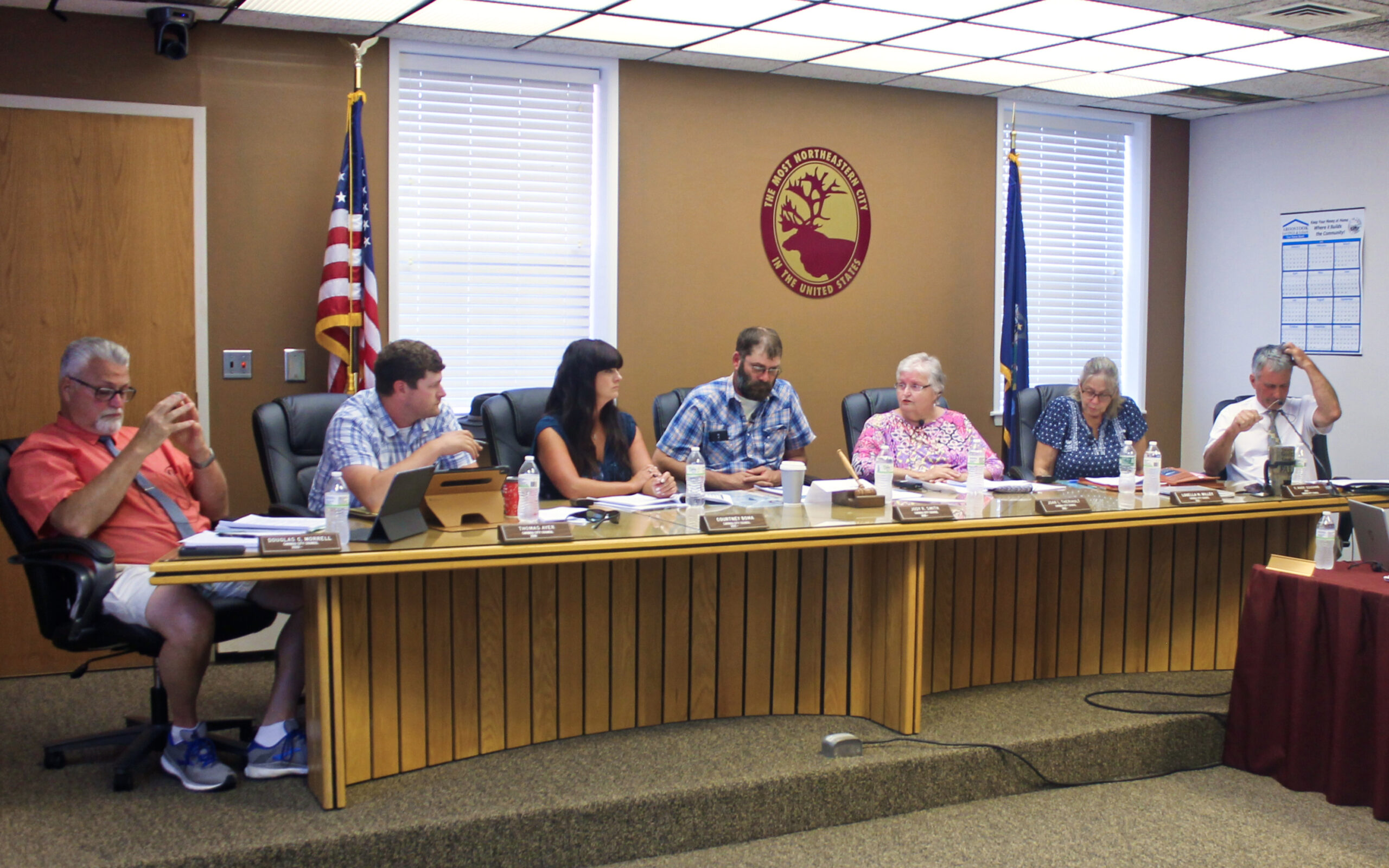
CARIBOU, Maine — A bare majority of Caribou’s city council voted to hold the mill rate at 23.55 with no overlay going into the 2021-2022 year.
The split among councilors came over a disagreement with what to do with the city’s originally calculated overlay: $194,790.77. The majority felt extra money should go toward funding the city’s projects, while the minority, composed of councilors Mark Goughan, Doug Morrell and Thomas Ayer, sought to lower the mill rate.
Approval for next year’s budget — and by proxy, its tax rate — has been stalled for a month while the city waited for RSU 39 to decide whether to keep $250,000 in state funding or to kick the extra cash back to the taxpayers of Caribou and Stockholm.
Caribou received a roughly $238,000 break from their portion of that money — $119,000 reflected in this year’s budget and $119,000 in the next.
“I do not see why we can’t give $100,000 for property tax relief as was intended when [the state] went to 55 percent [funding] for the schools,” Goughan said. “Along with a nice letter to the school board and the superintendent for us being able to pass this on to the Caribou taxpayers.”
Goughan suggested a cut between a quarter and a third of a mill, and was backed up by Ayer, who said he felt the tax cut would encourage spending in the city’s private sector thus stimulating the economy and increasing the tax base in the long haul.
“The ideology of taxing people to oblivion has stopped and I would hope it would continue to stay that way because you can’t tax your way to prosperity,” Ayer said. “It’s a slippery slope when you ask the city to hold money.”
Councilors in the majority argued that the city had been “kicking the can down the road” on many of its projects, and the money could go toward making major improvements to building or broadband, for example. Last year, the city reduced the rate by a full mill, which councilor Joan Theriault said was a strong reduction and could hold for another year.
“We certainly have things we can use the money for,” Councilor Louella Willey said. “I think some things have come across our table and we’ve been scratching our heads saying how are we going to make it work. This might be a start.”
Ultimately, the vote prevailed in favor of holding the tax rate. For the remainder of the more routine votes on taxes: including setting interest rates and commitment dates, Morrell and occasionally Goughan and Ayer voted no.
During the tax discussion, councilors on both sides of the vote agreed that in the spirit of giving the money from the RSU back to Caribou citizens, they would move the entire overlay into a line item to be used at the discretion of the city council on tangible projects to improve the city. Later in the meeting, they voted unanimously to do so.
“If we do this … then we need to have a clear path on what to do with this extra money. There needs to be a clear path that way everybody knows where it goes,” Ayer said. “My deal with not having to pay the school that much money is to give it back to school-related functions. Where do kids go after school? They go to the rec, they go to the library, they go to the Nylander.”
The councilors will discuss what to do with the additional $194,000 and exactly what projects to spend it on in coming meetings.
A city typically has an overlay so it can round off numbers in its budget calculations — for example to avoid charging people a fraction of a cent, newly appointed city manager Penny Thompson said. It is irregular to have no overlay especially two years in a row, she added.







